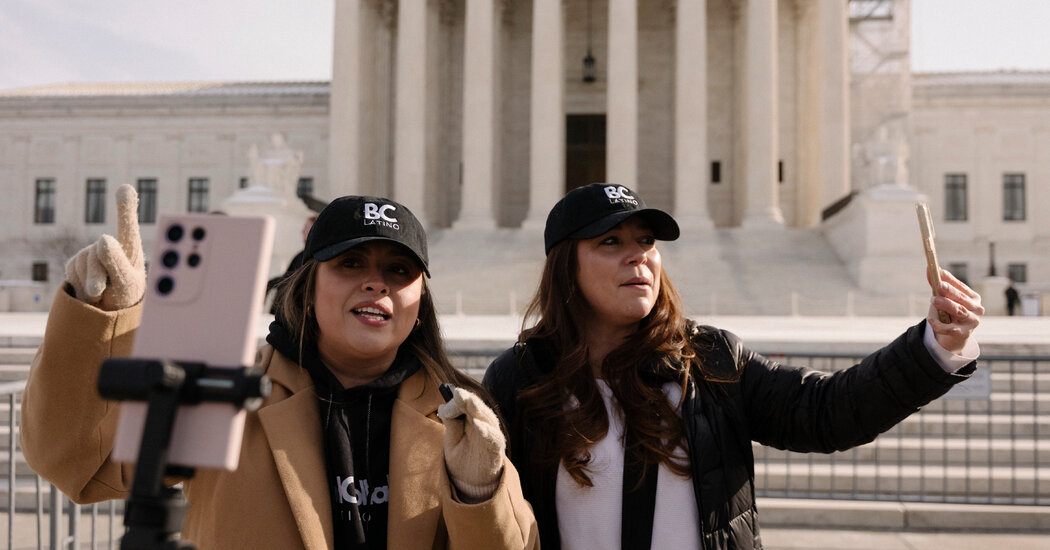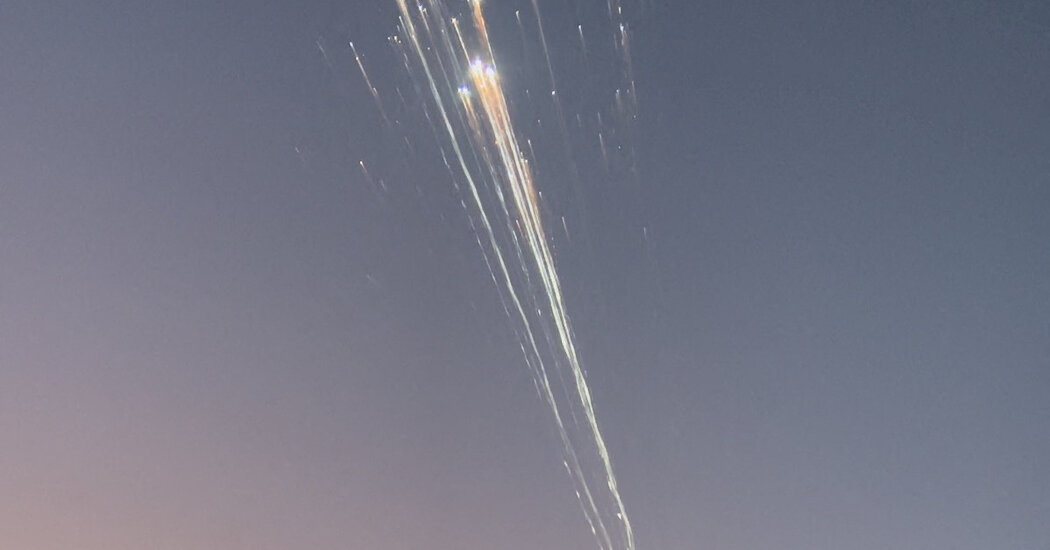The Supreme Court ruled against TikTok on Friday rejecting the company’s First Amendment challenge to a law that effectively bans it starting on Sunday.
The unanimous decision may deal a death blow to the U.S. operations of the wildly popular app, which serves up short-form videos that are a leading source of information and entertainment to 170 million Americans, especially younger ones.
“There is no doubt that, for more than 170 million Americans, TikTok offers a distinctive and expansive outlet for expression, means of engagement, and source of community,” the decision said. “But Congress has determined that divestiture is necessary to address its well-supported national security concerns regarding TikTok’s data collection practices and relationship with a foreign adversary.
In accepting the government’s arguments that China’s control of TikTok’s corporate parent poses a threat to the nation’s security, the court ruled that Congress was entitled to put its owners to the choice between selling it or letting it go dark.
The decision, delivered on an exceptionally abbreviated schedule, has few rivals in the annals of important First Amendment precedents and in the vast practical impact it will have.
Although TikTok’s lawyer told the justices last week that the app would “go dark” if it lost the case, it was not clear how quickly a shutdown would play out. At a minimum, it appeared likely that app store operators like Apple and Google would stop distributing and updating the TikTok app for fear of significant penalties imposed by the law.
The decision landed days before the potential ban was set to take effect and before President-elect Donald J. Trump was to be inaugurated.
Mr. Trump had asked the justices to temporarily block the law so that he could address the matter after he assumed office.
Recently, Mr. Trump had explored the possibility of an executive order that could allow TikTok to keep operating despite the pending ban. It remains unclear whether the tactic would withstand legal challenges or even how such an order would work.
The law allows the president to extend the deadline for 90 days in limited circumstances, but the provision does not appear to apply, as it requires him to certify to Congress that there has been significant progress toward a sale backed by “relevant binding legal agreements.”
Mr. Trump’s show of support for the app was a remarkable reversal from just four years ago, when he vowed to block TikTok and tried to force its sale. That rapport will be on display on Monday at the inauguration, where TikTok’s chief executive, Shou Chew, is expected to be a guest, invited to sit in a position of honor on the dais where former presidents, family members and other important guests traditionally assemble.
When the case was argued last Friday, the Biden administration’s lawyer told the court that any ban did not need to be permanent and that TikTok could start operating again if it were sold after the deadline.
In court papers, though, the company said it would sustain severe damage from even a brief pause in operations.
“If the platform becomes unavailable on Jan. 19,” its brief said, “TikTok will lose its users and creators in the United States. Many current and would-be users and creators — both domestically and abroad — will migrate to competing platforms, and many will never return even if the ban is later lifted.”
President Biden signed the law last spring after it was enacted with wide bipartisan support. Lawmakers said the app’s ownership represented a risk because the Chinese government’s oversight of private companies allowed it to retrieve sensitive information about Americans or to spread covert disinformation or propaganda
A three-judge panel of the U.S. Court of Appeals for the District of Columbia Circuit in early December rejected a challenge to the law brought by TikTok, its parent company, ByteDance, and several American users, ruling that the measure was justified by national security concerns. The judges differed somewhat in their reasoning but were united in accepting the government’s arguments that the Chinese government could exploit the site to harm national security.
United States Politics and Government,Decisions and Verdicts,Law and Legislation,Mobile Applications,Presidential Election of 2024,First Amendment (US Constitution),Supreme Court (US),TikTok (ByteDance),Trump, Donald J,Biden, Joseph R Jr,China
#Supreme #Court #Backs #Law #Requiring #TikTok #Sold #Banned


